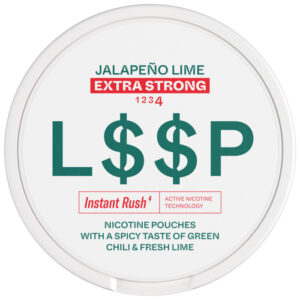Are Nicotine Pouches a Sustainable Option for Tobacco Users?
In the evolving landscape of tobacco alternatives, nicotine pouches have emerged as a beacon of hope for those seeking a sustainable option. This article delves into the world of nicotine pouches and sustainability, unraveling their environmental impact.
Table of Contents
- Nicotine Pouches: A Modern Twist on Tobacco Use
- The Sustainability Question: Nicotine Pouches Under the Microscope
- Ingredients Breakdown: What Goes Into a Nicotine Pouch?
- Manufacturing Process: Efficiency and Eco-Friendliness
- Disposal and Biodegradability: The End-of-Life Dilemma
- Nicotine Pouches vs Traditional Tobacco: An Environmental Perspective
- Consumer Responsibility and Sustainable Usage
- Regulatory Landscape: Governing Nicotine Pouches and Sustainability
- The Future of Nicotine Pouches and Sustainability
- Conclusion
- FAQ
Nicotine Pouches: A Modern Twist on Tobacco Use
Nicotine pouches, the latest innovation in tobacco alternatives, offer a smokeless experience. Unlike traditional tobacco products, these pouches contain nicotine without tobacco leaves, marking a significant shift in consumption methods.
The Sustainability Question: Nicotine Pouches Under the Microscope
When it comes to nicotine pouches, one must consider their entire lifecycle, from production to disposal, to gauge their environmental impact.

Ingredients Breakdown: What Goes Into a Nicotine Pouch?
Nicotine pouches comprise nicotine, flavorings, sweeteners, and fillers. Each ingredient’s environmental footprint, from sourcing to processing, plays a crucial role in determining the pouches’ sustainability.
Manufacturing Process: Efficiency and Eco-Friendliness
The manufacturing process of pouches is a critical factor in their sustainability. Efficient, eco-friendly production methods can significantly reduce their environmental impact.
Disposal and Biodegradability: The End-of-Life Dilemma
Disposal practices and the biodegradability of pouches are pivotal in assessing their sustainability. The challenge lies in ensuring these products don’t contribute to growing environmental waste.

Nicotine Pouches vs Traditional Tobacco: An Environmental Perspective
Compared to traditional tobacco products, nicotine pouches potentially offer a more environmentally friendly alternative, primarily due to their tobacco-free nature and potentially less harmful waste.
Consumer Responsibility and Sustainable Usage
Consumers play a vital role in the sustainable use of nicotine pouches. Responsible usage and disposal are key to minimizing their environmental impact.
Regulatory Landscape: Governing Nicotine Pouches and Sustainability
Regulations governing pouches also influence their sustainability. Stricter environmental standards can drive the production of more eco-friendly pouches.
The Future of Nicotine Pouches and Sustainability
Looking ahead, the future of nicotine pouches and sustainability seems promising. Innovations aimed at reducing environmental impact could make these products a viable sustainable option for tobacco users.
Conclusion
Nicotine pouches present a potential sustainable alternative for tobacco users. However, their true sustainability hinges on responsible manufacturing, usage, and disposal practices, coupled with stringent regulatory standards. As the industry evolves, so does the prospect of a greener future in tobacco alternatives.
FAQ
Nicotine pouches differ from traditional tobacco products primarily in their tobacco-free composition. This difference potentially reduces the environmental impact associated with tobacco cultivation and processing. Additionally, the manufacturing process of nicotine pouches can be more efficient and eco-friendly, contributing to a lower overall environmental footprint.
The environmental friendliness of the ingredients in nicotine pouches varies. While these pouches eliminate the need for tobacco, other components like flavorings, sweeteners, and fillers have their own environmental footprints. The sustainability of these ingredients depends on their sourcing, processing, and the efficiency of the manufacturing process.
The biodegradability of nicotine pouches depends on the specific materials used in their production. While some pouches may use biodegradable materials, not all are fully biodegradable. It’s important for consumers to check the product specifications and disposal guidelines to understand the biodegradability of the pouches they use.
Consumers play a crucial role in the sustainability of nicotine pouches. Responsible usage, coupled with proper disposal, can significantly minimize the environmental impact. Consumers can also drive demand for more sustainable products, encouraging manufacturers to innovate and adhere to eco-friendly practices.